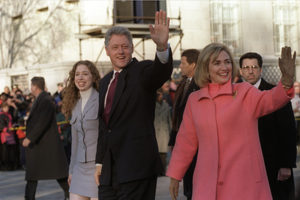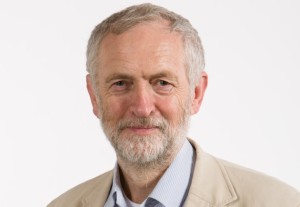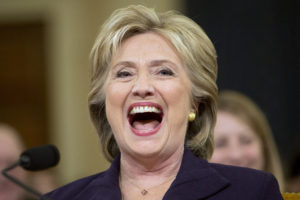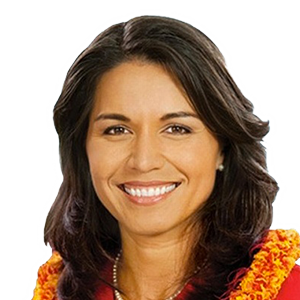Nicholas J S Davies: In 2002, when Margaret Thatcher was asked to name her “greatest political achievement,” she smiled her best cat-that-swallowed-the-canary smile and purred, “Tony Blair and New Labour.” The true measure of the Reagan-Thatcher counterrevolution was not how Reagan and Thatcher changed their own parties’ policies but that they remade their opposition in their own image and thus marginalized progressive politics for a generation in both their countries, clearing the way for the neoliberal transformation of society....Thanks to Michael Fiorillo for the torrent of articles on the Democratic Party. This one is a doozy. Long but worth reading in depth.
The real danger of the Ossoff fiasco is the same one the corporate Democrats keep creating and recreating for their party, that their slick, deceptive brand of politics is so tainting their identity that it will undermine real progressive Democratic candidates in 2018 and beyond. After a generation of corporate politics, it is vital that both journalists and the public learn to tell the difference between corrupt corporate Republicans and Democrats on the one hand and genuine, well-motivated grassroots candidates on the other.
https://consortiumnews.com/
July 3, 2017
Exclusive: By playing for centrist and neoconservative votes, national Democrats have left the party floundering with no coherent political message and creating a daunting challenge for democracy, says Nicolas J S Davies.
By Nicolas J S Davies
The most encouraging trend in the otherwise bleak landscape of Western politics is the success of the “new kind of politics” unveiled by Bernie Sanders in the U.S., Jeremy Corbyn in the U.K., and parallel movements, parties and candidates in other countries.

Sen. Bernie Sanders speaking to one of his large crowds of supporters. (Photo credit: Sanders campaign)
In 2002, when Margaret Thatcher was asked to name her “greatest political achievement,” she smiled her best cat-that-swallowed-the-canary smile and purred, “Tony Blair and New Labour.”
The true measure of the Reagan-Thatcher counterrevolution was not how Reagan and Thatcher changed their own parties’ policies but that they remade their opposition in their own image and thus marginalized progressive politics for a generation in both their countries, clearing the way for the neoliberal transformation of society.
Reagan and Thatcher launched a race to the bottom that politicians in France, Germany, Japan and the rest of the developed world soon joined in with. They slashed taxes on the wealthy and corporations, cut funding for everything but weapons, war and debt, privatized public services, and abandoned the principle that the wealth and power of wealthy countries should benefit all their people.
Western experts also fanned out across Eastern Europe to impose neoliberal “shock therapy” that caused soaring unemployment and shocking declines in living standards and life expectancy.
The DLC: the U.S.’s New Labour
The corporate-funded Democratic Leadership Council (DLC), which took over the leadership of the Democratic Party between the 1988 and 1992 elections, was the U.S. equivalent of Blair’s New Labour in the U.K. But unlike New Labour, the DLC downplayed its takeover of the Democratic Party instead of dressing it up in a splashy rebranding campaign.

President
Bill Clinton, First Lady Hillary Clinton and daughter Chelsea parade
down Pennsylvania Avenue on Inauguration Day, Jan. 20, 1997. (White
House photo)
It has tragically taken three decades for a majority of Americans to wake up to this plutocratic corporate buyout of their political system, first by Reagan’s Republicans, but then, decisively, by the Democrats who dropped the other shoe and left the public at large effectively unrepresented and marginalized.
Hillary Clinton’s dramatic 2016 defeat by one of the most unpopular figures in U.S. political history should have been a clarion call to the middle management of the Democratic Party — members of Congress, senior Congressional staff, and local and state party leaders — that the DLC model of politics had run its course.
Nobody in the Democratic Party more explicitly symbolized the corrupt DLC political model than the Clintons. Bill Clinton was the DLC’s fourth chairman from 1990 to 1991, and his election as President in 1992 cemented the DLC’s control of the Democratic Party. The first six chairmen of the DLC were all Southern men in the Clinton mold, and the DLC was never chaired by a woman in its 26-year history. (The DLC closed its doors in 2011.)
But Hillary Clinton’s defeat was hardly the first signal that the DLC Democrats had had their day. Corporate Democrats suffered a bloodbath in the 2010 midterm election. Even as the Congressional Progressive Caucus (CPC) enjoyed a net gain of four seats in the House in 2010, 36 percent of non-CPC Democrats were tossed out on their ears, losing 67 of their 185 seats.
The CPC was founded in 1991 by Sen. Bernie Sanders and five progressive Democrats, and it has grown to be the largest Democratic caucus in Congress, with 73 current House members representing the progressive wing of the Democratic Party.
If the 2010 election should have woken the Democrats from their complacency, the public disillusionment revealed by record low turnout in the 2014 mid-term should have rung the alarm bells off the wall. As Bernie Sanders repeated in almost every stump speech in 2016, “When voter turnout is high, Democrats and progressives win. When voter turnout is low and people are demoralized, Republicans win.”
And yet the overwhelming majority of Democratic members of Congress, including most members of the Progressive Caucus, still backed Clinton over Sanders in the 2016 presidential primary. Despite repeated and increasingly dire warnings, culminating in political suicide in 2016, the Democratic Party still refuses to repudiate or reform its failed, corrupt DLC model of politics.
Like other aspects of neoliberalism, the Reagan-DLC model is so entrenched and so successfully insulated the political class from accountability to the public that they just can’t believe the game is up.
After the election, Progressive Caucus co-chair Keith Ellison ran for the chair of the Democratic National Committee (DNC), on a platform to reform the party and restore integrity to the DNC, which flagrantly pulled strings for Clinton in the 2016 Democratic primary. But right-wing Democrats led by Haim Saban opened their wallets for an ugly campaign to smear Ellison, the first Muslim in Congress as an anti-Semite and dig up the votes to defeat him. When Saban and Company’s new DNC chair Tom Perez joined Bernie Sanders on a so-called “Democratic Unity” tour, he was booed from Maine to Miami.
As Claire Sandberg, Sanders’ former digital organizing director told Vice News, “The (Democratic Party) Establishment is like a doomsday cult; no matter how thoroughly their predictions (are) refuted by reality, they just dig in deeper in their incoherent worldview, with devastating consequences for the rest of us.”
Jon Ossoff v. Harry Truman
The latest Democratic fiasco is Jon Ossoff’s defeat by a 3.8 percent margin by Karen Handel in a special election in Georgia, despite spending $30 million on a campaign that broke the record for legalized bribery in a U.S. House race. To add insult to injury, Karen Handel is the former vice president of the Susan Komen Foundation who resigned over its support for Planned Parenthood in 2012. How much more self-inflicted humiliation can the Democrats stand?
On the same day, fellow Democrat Archie Parnell did a bit better than Ossoff, losing to Republican Ralph Norman by a margin of only 3.2 percent in an equally Republican-leaning district in South Carolina, despite only spending $500,000 and being all but ignored by national Democratic Party power brokers and fundraisers.
Could a share of the millions fruitlessly lavished on Ossoff have put Parnell over the top? We’ll never know. Or is the corporate Democratic Party machine now so toxic that its coolness to Parnell actually helped his candidacy?
If that is the case, it raises questions about the very purpose and existence of the Democratic Party. Could the Dems be doomed to go the way of PASOK in Greece or the Socialists in France, former ruling parties suddenly reduced to single digits by recent elections? Is that what it would take to revitalize U.S. politics? Should Sanders and progressives inside and outside the Democratic Party start a new People’s Party, as “Draft Bernie” activists at the recent People’s Summit in Chicago were calling for?
While Ossoff was a well-connected former Congressional staffer, a young celebrity candidate hyped by party leaders, Parnell was a self-deprecating retired tax attorney who ran as his own man, staking out straightforward policy positions that appeared to reflect his own judgments of what was important to his neighbors in South Carolina, not the calculations of career political consultants.
Parnell is a former Goldman Sachs executive, not a Sanders- or Corbyn-style democratic socialist, but he followed Sanders and Corbyn’s model of politics in the sense that he responded to the concerns of working- and middle-class voters in his district and vowed to take on powerful corporate interests.
The first issue on the “Issues” page of Parnell’s website was “Taxes and Big Corporations.” He promised to, “use his decades of experience and detailed knowledge of the tax code to make big corporations pay their fair share. He knows how to close the loopholes that allow big companies to stash trillions of dollars overseas (Parnell worked for Goldman Sachs in Hong Kong), and will use that revenue to strengthen our infrastructure and create jobs here at home.”
By contrast, the “Priorities” page of Ossoff’s website began with a section on “Our Economy” that dodged any commitment to take on powerful interests, parroting the corporate Democratic line with non-committal strings of focus-group-tested buzz-words like this: “Jon will stand up in Congress for a dynamic, forward-looking, fiscally responsible economic policy that maximizes opportunity for entrepreneurs, workers, and investors.”
Besides not committing Ossoff to doing anything at all, this kind of nonsense maintains the pretense that politics can please everyone, rich and poor, without confronting conflicting interests or power disparities between different classes or sectors of society.
In practice, corporate Dems and Republicans alike have used this kind of vague, non-committal language as a smoke-screen for the concentration of more and more power and wealth in the hands of a ruling class that is oblivious to the lives and problems of the rest of humanity. In a televised debate with Handel, Ossoff pledged not to bite the hand that feeds him by raising taxes on the wealthy, and came out against universal publicly-funded healthcare.
The Ossoff fiasco illustrates the dead-end into which the DLC Democrats have driven their party. As long as their primary goal is to raise the money they need to run corrupt multi-million dollar campaigns, their party can never honestly address the real concerns of the people whose votes ultimately decide the result. Once the public finally caught on to the corporate Democrats’ deceptive game, the Dems were bound to reap a whirlwind of righteous popular anger.
As President Harry Truman said in a speech in 1952, “The people don’t want a phony Democrat. If it’s a choice between a Republican and a Republican in Democratic clothing, they’ll take the genuine article every time.” Truman understood that betrayal and outrage are more potent political forces than arguments about which party’s policies are more evil than the other’s.
The Corrupt “Middle of the Road”
Because the Democratic Party has become first and foremost a fundraising and bribery machine, the only thing that Democratic leaders seem to have gleaned from Bernie Sanders’s success is that his presidential campaign raised millions of dollars in small donations from working- and middle-class people. So, corporate Democrats have latched onto grassroots fundraising as an element of Sanders’s “political revolution” that they can embrace – not issues such as universal healthcare, free college tuition and a $15 minimum wage. Now they are worried that Ossoff’s defeat may have killed that golden goose.
What anyone without a vested interest in the Democratic Party could have told the party bigwigs is that Bernie Sanders’s fundraising success was not a gimmick that could be replicated in isolation from other aspects of his campaign. It was the result of a public upsurge of support for a refreshingly honest, independent and perennially marginalized politician who offered concrete solutions to the real problems of American politics and society — problems largely created, swept under the rug and ignored for a generation by a corrupt political establishment.
As on so many other fronts, the corporate Democrats are caught in a trap they have set for themselves with their deceptive, monetized model of politics.
In 2008, they fabricated a myth that Barack Obama had raised a record share of his funding from small donors. But an apples-to-apples comparison of official records showed that he only raised 24 percent of his funds from donors who gave less than $200, about the same as both Kerry and Bush in 2004.
A well-publicized study by the Campaign Finance Institute (CFI) kept the Obama small donor myth alive by treating people who donated to both his primary and general election campaigns as if they were two different people, magically transforming many who gave more than $200 into twice as many smaller donors and boosting his small donor percentage from 24 percent to 30 percent in the primary and 34 percent in the general election in the CFI study.
Now the CFI has backtracked and cites the 24 percent figure. By contrast, both Trump and Sanders really did raise more of their funds from small donors – 44 percent for Sanders and 58 percent for Trump, compared with only 22 percent for Clinton.
The real danger of the Ossoff fiasco is the same one the corporate Democrats keep creating and recreating for their party, that their slick, deceptive brand of politics is so tainting their identity that it will undermine real progressive Democratic candidates in 2018 and beyond.
After a generation of corporate politics, it is vital that both journalists and the public learn to tell the difference between corrupt corporate Republicans and Democrats on the one hand and genuine, well-motivated grassroots candidates on the other. This distinction may ultimately be more important to the political future of the country than the choice between Republicans and Democrats, and telling the difference does not require an advanced degree in political science. A quick look at any candidate’s website can usually tell us most of what we need to know.
I already contrasted Archie Parnell’s promise “to make big corporations pay their fair share” of taxes with Jon Ossoff’s pledges to his wealthy benefactors. Ossoff also fully embraced Ronald Reagan’s tired old saw that the government should be “run like a business.” His so-called “accountability plan,” which aimed only to trim government waste, not to hold politicians accountable to their constituents for their policies or their corruption, included a section headed “Bringing the Government up to Private Sector Standards,” a classic theme of pseudo-technocratic “centrist” politicians.
Despite or maybe because of working on Capitol Hill for five years, Ossoff didn’t seem to understand that the federal government’s most critical responsibilities involve public services like healthcare, education, social welfare and infrastructure, for which the neoliberal “business” model has proved to be damaging and dangerous.
Ossoff’s political posture appeared to be calculated to position himself directly between the progressive wing of the Democratic Party and the Southern conservative “Blue Dogs,” a throwback to Bill Clinton’s “triangulation” strategy from the 1990s — even though the Blue Dogs have been reduced from 54 seats in Congress in 2008 to 18 now.
As Texan progressive activist Jim Hightower says, “There ain’t nothing in the middle of the road but yellow lines and dead armadillos.” The center in “center-left” has always been a euphemism for pro-big-business, and American voters have had 30 years to judge the effects of this calculated, cynical kind of politics on their country and their lives.
Americans are now divided, not so much between the deceptive pitches of corporate Democrats and Republicans, but between desperately hoping for a new kind of politics that honestly addresses the reality of their lives on the one hand and giving up on “politics” altogether on the other.
Moral Bankruptcy on War and Peace
Nowhere is the moral bankruptcy of the Democratic Party more evident than on questions of war and peace. Americans chose Obama over Clinton in 2008 in large part based on Clinton’s vote for the Iraq War authorization and Obama’s decision to speak at an anti-war rally in Chicago in October 2002, in which he called the illegal planned invasion “a dumb war.”

Saudi
King Salman bids farewell to President Barack Obama at Erga Palace
after a state visit to Saudi Arabia on Jan. 27, 2015. (Official White
House Photo by Pete Souza)
In fact, military-industrial power brokers like Chicago’s Crown family had backed Obama’s political career right from the start and knew him far better than the general public, who were meeting him for the first time through his award-winning marketing campaign. The Crown family were among Obama’s top national fundraising “bundlers” in 2008 and former General Dynamics’ CEO Lester Crown, the patriarch of the family, hosted an elite fundraiser for Obama at his home in Chicago.
Once elected, Obama dropped more bombs and missiles on more countries than Bush, and expanded the violence and chaos of Bush’s “war on terror” to Libya, Syria and Yemen. Obama spent more money on weapons and war than any president since World War II (even after adjusting for inflation), and rewarded General Dynamics with a steady stream of profits from expanded production of Virginia class submarines ($2.5 billion each), 39 new Arleigh Burke destroyers to be built over 20 years ($1.8 billion each) and three new Zumwalt destroyers ($7.5 billion each, including development costs, more than an aircraft carrier).
Obama and a Democratic Congress ordered the Zumwalt destroyers in April 2009 over the objections of the Navy, which called the Zumwalt, “a ship you don’t need,” as the program had already become an operational, engineering and procurement nightmare.
Admiral Jay Johnson, the former chief of naval operations who had championed the Zumwalt program, was by then Vice Chairman, and soon to be CEO, of General Dynamics. The Zumwalt destroyers are vulnerable to modern anti-ship missiles, and the first ship launched, the USS Zumwalt, had to be towed out of the Panama Canal in December 2016 after its propellers jammed and it ran aground.
As a major supplier of bombs and ammunition, General Dynamics has also profited handsomely from the U.S. bombing of Iraq and Syria, which is now the heaviest U.S. bombing campaign since the bombing of Vietnam, Cambodia and Laos, with over 84,000 bombs and missiles dropped since 2014.
The various Al Qaeda splinter groups tearing Syria apart have all been armed with some share of the thousands of tons of weapons the Obama administration and its allies flooded across Syria’s borders since 2011. These include thousands of howitzers, rocket launchers and other heavy weapons, and over 315 million rounds of ammunition, as Gareth Porter expertly catalogued in a recent article.
Democratic Representative Tulsi Gabbard of Hawaii has introduced the “Stop Arming Terrorists Act,” which would prohibit any further U.S. arming of Al Qaeda-linked terrorists in Syria or anywhere else. But only 14 of her colleagues have co-sponsored her bill and eight of them are Republicans. The six progressive Democrats who have signed on are Welch, Lee, Conyers, Khanna, Rush and De Fazio.
In the Senate, Chris Murphy, D-Connecticut, has taken the lead in opposing arms sales to Saudi Arabia and the U.S.’s despicable role in the Saudi-led war on Yemen. The bill Murphy sponsored with Senators Rand Paul, R-Kentucky, and Al Franken, D-Minnesota, to stop a small part of the latest Saudi arms sale failed by 53-47, thanks to five Democrats who voted with the Republican majority: Donnelly, Manchin, McCaskill, Nelson and Warner.
Senator Bill Nelson, from my home state of Florida, has long been known as the “Senator for Lockheed Martin.” But it is a new low, even for Nelson, to prioritize profits from U.S. arms sales over the dangerously precarious lives of the starving and cholera-stricken children of Yemen.
In its markup for the 2018 national defense authorization, the House Armed Services Committee has approved consideration of Barbara Lee’s amendment to repeal the 2001 Authorization for the Use of Military Force (AUMF), the legal fig-leaf with which Pentagon and White House lawyers still pretend to justify the rivers of blood shed in the name of September 11th and the “global war on terror.”
Barbara Lee was the only member of Congress in either chamber with the wisdom and courage to vote against the AUMF in 2001. How many will stand with Barbara Lee this time to consign the AUMF to the garbage can of history?
Predictably, neither the Ossoff nor Parnell campaigns offered any new or progressive positions on U.S. war policy. Ossoff’s website had a long-winded statement of unconditional support for Israel, with no mention of human rights, occupation or settlements, nor any word on the plight of the Palestinians at all, and he threw in a threat of destabilizing new sanctions against Iran for good measure.
This kind of blatant pandering to the Israel lobby is another cynical staple of the DLC model of Democratic politics. Ossoff touted his five years as a national security staffer but avoided specific policy proposals, while Parnell’s website promised only to keep the local Air Force base open and support military veterans.
The U.S. has been at war for over 15 years. Its wars have killed hundreds of times the number of Americans killed on September 11th. No country destroyed by the U.S. war machine has yet emerged from the violence and chaos unleashed on it, making them all fertile ground for Al Qaeda and ISIS recruiters, who flaunt their capacity to keep striking back in surprising places, from San Bernardino and Manchester to the Philippines and West Africa to the heart of Kabul’s fortified Green Zone.
Yet no Democratic Party leader has presented any proposal to deescalate an increasingly global asymmetric war that keeps spreading and spinning farther out of control. As the Trump administration looks only to dangerous and potentially catastrophic escalation on every front, where is the Democratic alternative?
Beyond Inverted Totalitarianism
Gabbard’s bill on Syria, Murphy’s initiatives on Yemen and Lee’s AUMF repeal bill are all tests of whether the Democratic Party can become relevant again to the future of our country and the world. Bernie Sanders’s campaign got a shot in the arm when Gabbard joined him on the campaign trail and took on the questions of war and peace that he had timidly avoided.

A sign at a Bernie Sanders rally in Washington D.C. on June 9, 2016. (Photo credit: Chelsea Gilmour)
Sanders would do well to have a serious discussion about foreign policy with Jeremy Corbyn, whose progressive views and expressions of concern for the lives of working people and their families do not stop at the borders of his own country. Corbyn’s domestic and foreign policy positions therefore form a coherent and consistent whole that makes sense to the public, who keep rallying around him despite regular predictions of catastrophic defeat by both his Tory opponents and Margaret Thatcher’s pride and joy, the New Labour/Blairite wing of his own party.
In his 2006 book, Democracy Incorporated, Sheldon Wolin described our present neoliberal political and economic system as “inverted totalitarianism,” differing from classical totalitarianism in that, instead of just abolishing the tools of democracy, our rulers have coopted them to use for their own purposes.
Wolin observed that the inverted form of totalitarianism seems to be a more palatable and therefore sustainable way to concentrate wealth and power in the hands of a privileged ruling class than the classical totalitarianism of the Twentieth Century.
But the genius of inverted totalitarianism is also its weakness. As long as the institutions of democracy still exist, even in their present hollowed-out and corrupted form, the wealthy and powerful face the danger that the public will one day discover its voice and its power, stop voting for corporate-backed celebrity politicians like Donald Trump and Hillary Clinton, and develop a “new kind of politics” that offers real solutions to our most serious problems, from poverty, inequality and for-profit healthcare to war, terrorism and climate change.
The refusal of the Blairites and Clintonistas to see the writing on the wall for their 1990s brand of politics is costing the people of the U.K, the U.S. and the world very dearly. But the sleeping giant of democracy is stirring beneath the astro-turf of the American dream.
The Sanders and Corbyn campaigns, Podemos in Spain and connected movements around the world may be the first green shoots of a just, peaceful and sustainable future — but only if we recognize that it is up to all of us to both nurture them and hold their leaders accountable on the critical questions of our time.
Nicolas J S Davies is the author of Blood On Our Hands: the American Invasion and Destruction of Iraq. He also wrote the chapters on “Obama at War” in Grading the 44th President: a Report Card on Barack Obama’s First Term as a Progressive Leader.



No comments:
Post a Comment